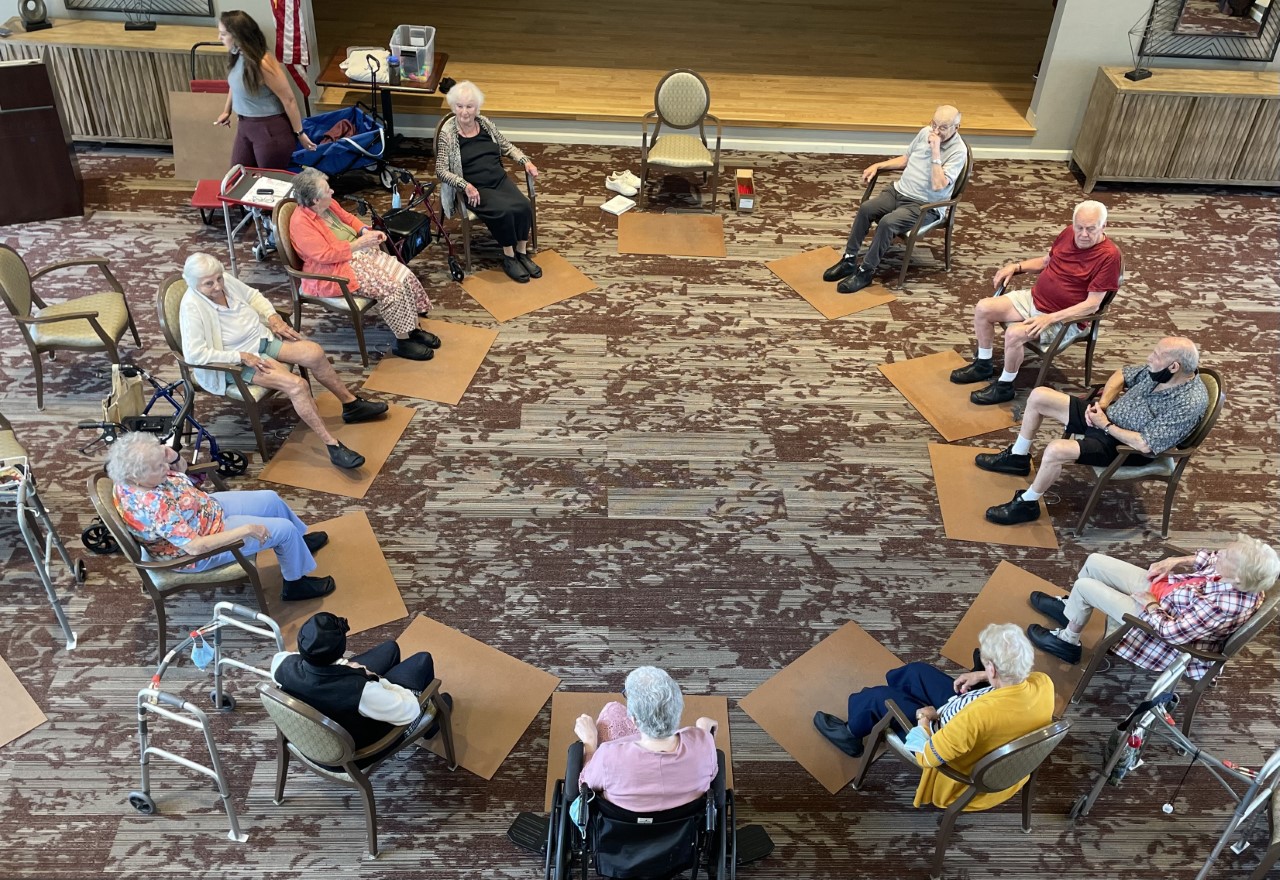Perhaps the most profoundly impactful consequence of illness, injury, or aging is the loss of mobility and independence, disrupting beloved routines and socialization. Seniors who engage in senior rehab solutions, like moderate daily physical activities, are less likely to suffer from mobility loss than their sedentary counterparts, according to a study conducted by the University of Florida. In addition to helping older people stay active and independent, regular physical activity can also lower the risk of many health problems.
Far-reaching Benefits
The benefits of regular exercise and movement for people of all ages have been well-documented, and the long-term health risks and dangers of a sedentary lifestyle have become more well-known. According to recent data, 67 percent of older adults are reported to be predominantly sedentary for over 8 hours a day.
Senior rehab solutions, like physical therapy and ongoing exercise, are necessary to maintain and improve mobility after an injury or surgery as we age. These activities have also been shown to help lower the risk of:
- Dementia
- Heart disease
- Cancer
- Obesity
- Diabetes
- Arthritis
- Hypertension
- Depression
- Insomnia
Senior rehab solutions can be designed to improve strength, balance, coordination, joint health, flexibility, and agility, which can help prevent falls and injuries.
Tips for Helping Seniors Stay Active and Mobile
After an injury, surgery, or a fall, it’s important that seniors consult their doctor to ensure they are getting the appropriate level of senior rehab solutions to recover.
According to the Journal of the American Medical Association, adults over age 70 can benefit from a moderate exercise schedule, like walking, combined with strength training. Seniors who move regularly were found to be 28 percent less likely to become disabled, and 18 percent less likely to suffer from an overall disability as they age. Taking a simple walk a few times a week may not seem like it will have much of an impact in the short term, but the benefits can go a long way toward securing their mobility and independence, long term.
For families who are unable to provide their senior loved ones with supervised recovery activities, assisted living and active retirement programs are an excellent resource.
Making Exercise Fun and Social for Seniors
Social isolation is one of the most significant threats to homebound or physically limited seniors, increasing anxiety, depression, and cognitive decline. Older adults can stay healthy and physically fit and avoid many of the secondary health risks of aging, by taking regular evening walks with friends and family, or regular sessions with fellow seniors.
As more and more adults reach retirement age and continue to live longer than previous generations, lifestyle changes and activities that promote long-term health, fitness and independence will become a growing priority for seniors and their families. The good news is that it is never too late to get moving. The Centers for Disease Control and Prevention (CDC) recommend that seniors should regularly perform activities that engage:
- Core
- Legs
- Hips
- Back
- Chest
- Abdomen
- Shoulders
- Arms
In addition to cardio and aerobic exercises, strength- and muscle-building activities can help seniors stay active and strong but weightlifting or going to the gym are not the only options. Some alternatives include:
- Resistance bands
- Using body weight for resistance (push ups, sit ups)
- Gardening (digging, shoveling)
- Yoga
Get creative and experiment with what works best and keeps a senior engaged and excited to get moving on a daily, weekly, and long-term basis.
SALMON Health and Retirement offers several programs designed to support seniors and their families, including:
- Short-term rehab
- Post-acute care
- Long-term care
- Assisted living
- Active retirement
For more information contact us today.




